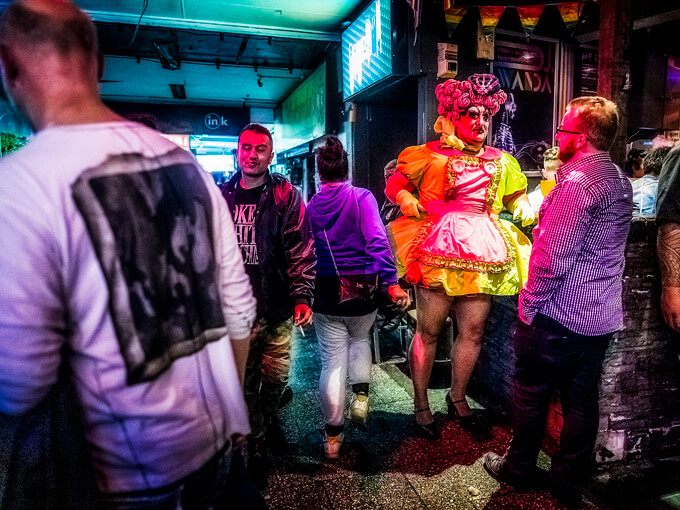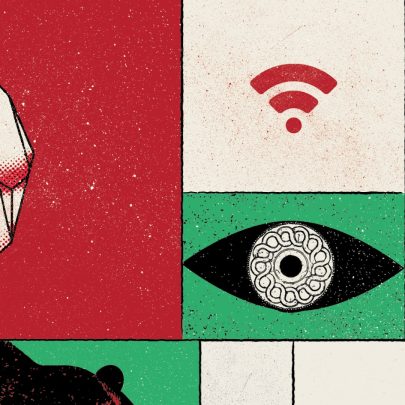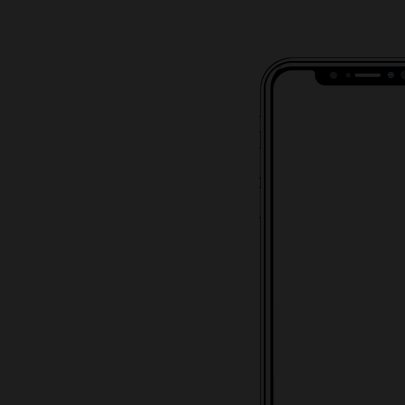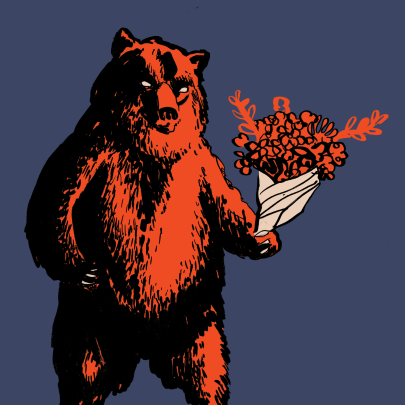Jul 8, 2019 Society
Straight men are turning up at Auckland’s best-known gay bar in increasing numbers. For some of its patrons, that’s a problem.
“There’s so many boys touching my butt. I hate them.”
It’s early morning and Family Bar is heaving. It’s thronging with people, drunk, sweaty, dancing, spilling out onto K’ Rd, unseasonably warm at 2am in early winter. Having fun. Fed up.
A man raises his hands in a kind of faux-apology as a woman whips around on the dancefloor and tells him sharply not to grab her. Doesn’t he know this is a gay bar? “We’re all trying to have a good time,” he bleats, plaintively.
That’s what Family Bar promises, isn’t it? A good time. Spanning three levels and open later than most along the inner-city’s party strip, Family can put on a night out few venues in the city can rival. Come August, its doors will have been open for 14 years; not so much a gay bar in Auckland as the gay bar in Auckland.
A lot has changed in the past 14 years, mostly for the better: the legalisation of same-sex marriage, the historic pardoning of gay men convicted of homosexual acts, the widespread popularity of TV shows like RuPaul’s Drag Race, and the shifting attitudes towards LGBTQI people that both underpin and follow these developments. Many straight men who wouldn’t have been caught dead in a gay bar a decade ago now don’t mind heading there on a night out.
It went like this: straight women started flocking to Family for hens’ or girls’ nights so they could dance and let loose without having to think about men at all. That was fine — they mainly behaved themselves, they loved the drag shows, everyone was still having a good time. Then, two or three years ago, straight men began coming in, too, in increasing numbers.
Whether that’s a problem depends on who you ask. Family’s operations manager, Grady Elliott, correctly points out you can’t legally stop someone coming into a venue on the basis of their sexual orientation — and even if you tried, how would that possibly work? Would you put armbands on people to show they’re gay? Make them give proof at the door?
For Elliott, the fact so many straight men are comfortable being in a queer space is a positive sign of progress and the result of work from previous generations of queer people who fought hard for acceptance. “Ten or 12 years ago, straight people wouldn’t go to gay bars; they wouldn’t be seen in a gay bar. This is this whole tolerance of everybody trying to live together, work together.” Family’s owner, Wayne Clark, goes even further, saying complaints about straight people in the bar come from a small group “that wish to segregate themselves from having any contact with heterosexuals”. Before Family there were no mainstream gay bars in Auckland, Clark says. “Nobody wanted to build one after the previous gay bar had been burnt down.” (In 2004, a suspected arson damaged the gay bar Flesh.)
Clark rejects the idea the space is not gay enough. “Over the last 14 years that Family Bar has been open, we’ve thrown huge street parties, dance tents at Big Gay Out, offered free buses to and from gay events as well as after-parties from the Pride festivals.”
But many young people in Auckland’s LGBTQI community feel they’re losing something special, particularly because many of the straight men coming in don’t appear to respect the fact they’re in a queer space. And they feel the bar’s management doesn’t care that people are feeling increasingly uncomfortable at one of the city’s most prominently gay institutions.
Those interviewed for this story recall hearing queer men being told to “fuck off, faggot” and made fun of for wearing make-up. They say they’ve seen men lifting drag queens’ dresses “to see what they’ve got underneath”, and seen straight men employing homophobic tropes like the “limp wrist” gesture to mock gay men in the club. “It’s like drag queens and queer people are there to make fun of,” one local drag artist says.
An incident in December last year involving queer American rapper Brooke Candy (who, depending who you talk to, was either deliberately punched in the face by Family’s house DJ or accidentally clipped on the chin following an altercation about set times) is widely understood to have been a tipping point for many. Social media blew up. Many were furious Family didn’t appear to be backing a queer artist. “The DJ playing music the gays don’t even enjoy is half the reason cis straight people are taking over Family Bar in the first place,” one person posted to Instagram in the days after the incident. Then there’s the constant groping of queer women, many of whom count Family as the only place they can go out to where they might hope to be entirely left alone by men.
“Worrying about being harassed at Family is not even like it’s a possibility; it feels like it’s an inevitability,” says Olivia Coupe, who runs monthly club night Queer AF at the nearby Basement Bar, in part to offer a femme-focused alternative to Family. “I can’t remember the last time I went to Family I haven’t had to push someone off me after politely telling them, no, I don’t want to dance with you.” Coupe, who is a lesbian, is tired of men grinding on her and her friends while they dance, or worse, crowding around, leering, if two women kiss. “It’s a free-for-all right now.”
On the packed dancefloor on a Saturday night, it certainly feels like it. Women stick together on the dancefloor, but staying in packs doesn’t stop hands grabbing at waists and asses. The worst is when men come up behind women and grind on them, only to feign innocence when they’re taken to task. “Playing dumb bullshit,” spits one woman as she and her friends leave the club, cutting their night short. “They know exactly what they’re doing.”
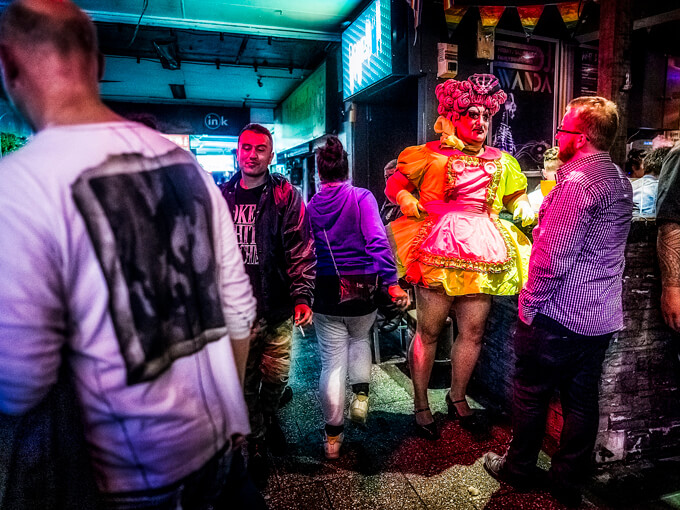
Some women are so fed up they’ve stopped going to Family altogether. At 19, Jess Raynor has already more or less given up on the venue. “Some nights, there are only minimal shit comments from men, and those are the good nights,” she says. Other nights, men grope her and her friends, from the moment they walk through the doors, and ask them where their boyfriends are. “Those are the bad nights.”
Caitlin Ruske, a bisexual woman in her mid-20s, remembers being kissed out of the blue by a man as she sat in a booth in the upstairs bar at Family while waiting for friends on New Year’s Eve in 2016. “I leant back and was like, ‘What are you doing?’ And he was like, ‘Oh, did you not want that?’ No, of course I didn’t want that.” At the time, Ruske says, she felt shocked (why would he assume he could kiss a woman in a gay bar?), but now straight men at Family are so commonplace she hardly bothers to go any more. “Regardless of whether I was getting harassed or not, it doesn’t feel safe. You can feel eyes on you. It’s the casual walk-by; hands that glide across your bum.”
All this reflects a fundamental lack of respect being shown to the LGBTQI community, and women in particular, she says. For all the progress we might have made, people are still homophobic, and they’re still sexist. “Do we sit down all the straight men coming into Family and talk about consent? It is that mentality of, ‘Oh, she’s a lesbian, but has she ever tried having sex with me?’ I understand why people want to go there — it’s a good time. But it’s now becoming less of a good time for people who use that as a place to go and feel comfortable with themselves.”
So, whose responsibility is it to stop the bad behaviour? It’s hardly Family Bar’s fault so many straight men can’t keep their hands to themselves, but surely a gay bar has some kind of inherent mandate to keep the space queer, and therefore safe for queer people?
“Yes, family has always been a gay venue, and over time it’s drifted into an inclusive zone,” Elliott says. “If we kept ourselves 100% gay and turned away the straight people, we wouldn’t be where we are today — we wouldn’t survive.”
He adds the LGBTQI community in Auckland has a bad track record supporting queer businesses. He has been part of several projects specifically targeting the gay community, including the gay and lesbian venues Twist and Candy Bar, all of which had to close their doors within a year. “The gay community is very fickle. They demand these things and then, when you give it to them, they don’t support it and these businesses don’t survive.” Anyway, he says, it’s all about equality these days. “The gays want to be included with everyone, and they want to be part of everywhere, and they don’t want to be walking down the street going, ‘I’m gay and I need my own space’. It’s 2019 and we have to move with the times.”
Is progress really so cut and dry, though? One young gay man Metro spoke to on the condition of anonymity pointed out he and his friends have been spat on walking down Queen St. Some clubs won’t let men in unless they’re wearing a button-down shirt — let alone a full face of make-up and high heels. “For queer people — the ones who are a bit more flamboyant — Britomart or the idea of going downtown is just unfathomable.” For him, losing Family would be like losing a hub, a place to spend time with like-minded people without worrying about heteronormative judgements, if only for a night.
Elliott and Clark are understandably defensive of how Family is run. Elliott believes he and his team do a good job, and Clark says Family has zero tolerance for homophobia and that this policy is strictly enforced by bouncers. Elliott rejects assertions there aren’t enough security guards (in response to suggestions Family stations security on the dancefloors: “How many more security do you put around the place and make it look like Fort Knox?”) and that staff aren’t responsive enough to incidents of sexual harassment or aggression. But he is open to new ideas. He’s been considering buying lids for drinks after someone from Rainbow Youth approached him with concerns about the number of drinks being spiked at Family, he says he’ll consider adding new training to staff inductions to give workers a better idea of how to handle potentially unsafe situations, and he was enthusiastic about a suggestion to put up more signage reminding people Family is a gay bar and everyone needed to behave respectfully.
Elliott feels he’s doing his best. He asserts that “short of asking people at the door if they’re straight and wrapping the girls in cotton wool so they don’t get groped” there’s not much that can be done. In the course of our interview, he comes back time and time again to the point that you cannot, legally or practically, keep people out on the basis of their sexual orientation. Even if he could, he wouldn’t want to. “We’re not living in the 80s any more. It’s not going back to the Staircase days, where the gays went to one bar and the straights went across the road and that’s the way it was.” The thing is, no one Metro spoke to wants straight people banned; they just want their bar to stay, well, gay.
In the driest sense, sexual orientation is about who you love. That’s what straight people love to say to show how open-minded they are — “Love is love.” But being queer is, for many people, about something more than that; a way of being in the world which rejects certain norms. “Not gay as in happy, but queer as in fuck you,” as the saying goes. For queer women, there are expectations that an LGBTQI-friendly space would prioritise their safety, as a rejection of mainstream patriarchal norms that accept or even implicitly endorse aggressive behaviour towards women by men.
Creating a culture that reflects this is about setting expectations for acceptable behaviour, and Family hasn’t done enough, its detractors say. It’s been noted that despite being a gay bar, Family seems to be less proactive than other venues along K’ Rd about marking itself as a queer-friendly space. “You go to places like Whammy Bar on K’ Rd. They have a poster in the toilet saying, ‘This is an LGBTQI-friendly area. If you feel threatened, come to us’ — and that’s not somewhere that markets itself necessarily as a gay bar,” says Jen Meagher, a pansexual queer woman who still loves going to Family, despite feeling every night there runs the risk of sexual harassment.
Queer people don’t want Family to close, and they don’t want to abandon it, either, but they really want things to change. Local drag performer Rani Kumari says if the queer community throws in the towel, they’ll lose the good with the bad. “It’s so easy for our generation to cancel a venue and say, ‘I’m not going there any more, I don’t feel safe’. There needs to be a conversation and there needs to be more queer people going and fighting for our venue.”
This piece originally appeared in the July-August 2019 issue of Metro magazine, with the headline ‘Family Values’.

